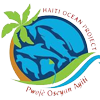GIVE
1- Haiti - Project on the training of shark-protecting fishermen and whistle-blowers for the protection of marine mammals
As an island, a large portion of Haiti’s natural heritage is found in the surrounding ocean. The country’s waters are home to a diversity of species, including marine mammals, sharks, rays and sea turtles. Many of Haiti’s marine species are endangered or even critically endangered – species that are critical to the health of the ocean. Approximately 50,000 fishermen reside along the coastline of Haiti, some of these fishermen living in the Nippes region. However, many of these fishermen are catching and killing these valuable marine species, which have become a source of food for these fishermen and their families.
In order to protect and preserve these important marine species, a formation of training that would provide alternative options income-generating work, would be a necessary next step. This would allow those fishermen involved to take a different of their marine environment and species and to understand the concept of awareness for the protection of this environment.
2- Haiti - Project for the construction of the first hospital that will integrate the rescue and rehabilitation of turtles in Petite Rivière De Nippes and surrounding municipalities .
That is why it’s urgent we build Haiti’s first sea turtle rescue hospital and rehabilitation facility, which will include necessary equipment, holding pools, and supplies to respond to strandings, confiscated or wounded turtles with the goal to release them back to their ocean home. The goal is to treat sick and injured sea turtles - the treatment protocol is from rescue to release – which means that sea turtle patients are released as soon as they are medically cleared. If a patient is deemed non-releasable, we would discuss keeping it at our facility permanently or transferring to another sea turtle facility elsewhere in the Caribbean or the United States.
3- Haiti - Project for existing community education and outreach programs led by project partners with a focus on higher-level species
Marine education is not taught in Haitian classrooms. Children in coastal communities along the 1,600 kilometers of coastline in Haiti, have no knowledge of their ocean and its marine inhabitants. These children eventually grow up, without an understanding of the value of their waters and the importance of why they should protect and preserve the endangered species that reside in these waters. Haiti Ocean Project is working to change that and develop the next generation of eco-ambassadors in their country. And, this is more than just a chance to educate and create awareness, it will also provide crucial data that can be utilized for marine research.
By conducting outreach in local fishing villages, we will obtain valuable information about specific species and their habitats, while generating interest and awareness among locals. Involving fishermen to observe species they encounter at sea, as well as catch, will also get these fishermen more involved and connected to out mission. A database compiling all the observations acquired, will be shared with top marine scientists and conservationists, to study trends, migration patterns and habitats of these species. Success will be measured by how the results of these observations are used to help find ways to protect and preserve these species.
4- Scuba certification
Haiti Ocean Project is committed to bringing marine education, conservation, and eventually economic growth through an eco-tourist economy that supports the local people. To enhance these efforts, four main coordinators of Haiti Ocean Project wish to get certified to SCUBA dive. Unfortunately, this endeavor is costly, and they may need to go to the Dominican Republic to accomplish it. We are asking for your financial support to make this happen.
SCUBA certification will allow Charlens Calixte, Francklin Barbier, Cleeford Joseph and Myson Samedi to do the following:
Monitor a passive acoustic device, which records all marine mammal sounds within a certain radius. Maintenance requires that divers retrieve the device every 45 days and replace the batteries every two months. Prevent harm to large oceans species through monitoring of gillnets. Partner with international organizations like The Nature Conservancy who look for certified scuba divers to help them with fish surveys, coral reef health, etc. in marine protected areas. Career opportunities for individuals who are scuba certified.
5- General fund
We also need funds to support the overall operation of Haiti Ocean Project, in addition to specific programs. Consider donating to our general fund that supports our immediate needs (emergency arising costs, support for staff, equipment, rent, power, etc.) and our long-term sustainable developmental goals such as, educational needs for staff and community, equipment investments (vehicles, fuel, water filtration), and internal systems.
WHY CHOOSE US
A special thanks to Olivier Barrau, CEO of Alternative Insurance Company whose generosity has allowed us to build this website and, without which, we could not have had an ideal showcase, both in Haiti and around the world.






